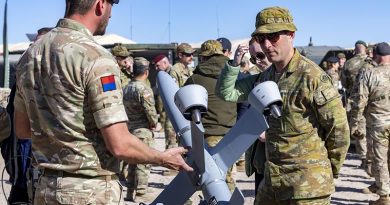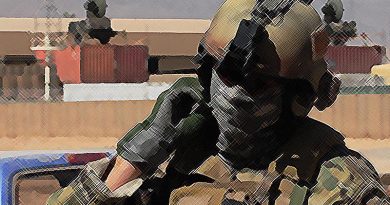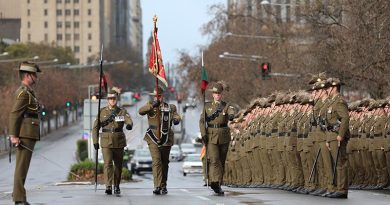The Last Battle – SOTG in Shah Wali Kot

Dear editor,
May I introduce you to a new book I have written, highlighting the role of the Australian Special Forces Task Group in Afghanistan, who bravely achieved ‘the greatest victory of Australia’s longest war’.
In June 2010, 2nd Commando Regiment came up with a simple but daring plan: fly into a Taliban sanctuary at night, find talibs prepared to fight, and kill them. Underestimating the size and skill of the enemy, Alpha Company found itself in a battle for its life in the village of Chenartu. A day later, a Special Air Service Regiment unit flew into an adjacent valley for what it thought would be a routine mission to capture a Taliban commander.
Provided with faulty intelligence, their helicopters were attacked by the same talibs who fought the commandos the day before. Badly outnumbered, the SASR unit could have tried to escape or wiped out the tiny village of Tizak with an air strike. Instead, armed with little more than assault rifles and grenades, they conducted a daylight frontal attack that killed a force three times as large. No Australians or friendly Afghan soldiers died. The two battles became known as the Battle of Eastern Shah Wali Kot. The army considers it the greatest victory of its longest war. For their skill and professionalism, the commandos and SASR were issued the first battle honours since Vietnam.
Shah Wali Kot was more than a battle. It was a lesson. The Australians demonstrated how a well-organised assault could end the Taliban’s control over a region – and how a disorganised one could risk even the most elite unit. It was an example, in microcosm, of how the war could be won, and lost. The mission was part of a broader US offensive to win the war. Shah Wali Kot may have been the first success of what was dubbed ‘The Surge’, the Obama administration’s strategy to pour tens of thousands more soldiers into the south and secure Kandahar City. The Taliban in Shah Wali Kot was almost wiped out, relieving pressure on Western forces elsewhere in the province. Despite its historical importance, few Australians have heard of the battle. Even within the military, knowledge is limited. The reasons are complicated. The war was Australia’s least understood.
Few Australians have a connection to Afghanistan, and its fate had little bearing on Australia’s future. Journalists could only access the soldiers under restrictive conditions. Allegations of military misconduct, which began to receive heavy coverage in 2015 and 2016, added to a reluctance by Australia’s defence and political leadership to highlight, let alone celebrate, acts of battlefield bravery. With the exception of the now notorious Victoria Cross recipient Ben Roberts-Smith, the army has chosen to keep the recipients of medals from the battle anonymous, even though most have left the army and the war is over. Even Vietnam veterans, who fought in a similar war, were eventually celebrated in movies, monuments and books. Australia’s Afghan veterans are largely ignored, even though they fought as hard as the men at Long Tan. It was not until July 2024 that the first public memorial ceremony was held for veterans of the modern Middle East wars. Held at the Cenotaph in central Sydney and attended by no senior government minister, it included representatives from all military and uniformed civilian services and Australia’s military allies.
Whether Afghanistan was the right war at the right time, was irrelevant to the men of the Special Operations Task Group, the commando and SASR force in Afghanistan. They did their duty. Some died. Others came back badly injured, physically and psychologically. All were shaped by the experience. They deserve recognition for their sacrifice, praise for their courage. The victory was due to their heroism, determination and expertise. In a war the West was losing, a small group of Australians demonstrated that success was possible with the right plan executed by skilled fighters and able leaders.
This is their story.
Thank you for your consideration,
Aaron Patrick
Chief writer at The Nightly,
Seven West Media
The Last Battle, published by Pan Macmillan is available at book stores and through Amazon.com.au or Booktopia.com.au
.
.

.
.





